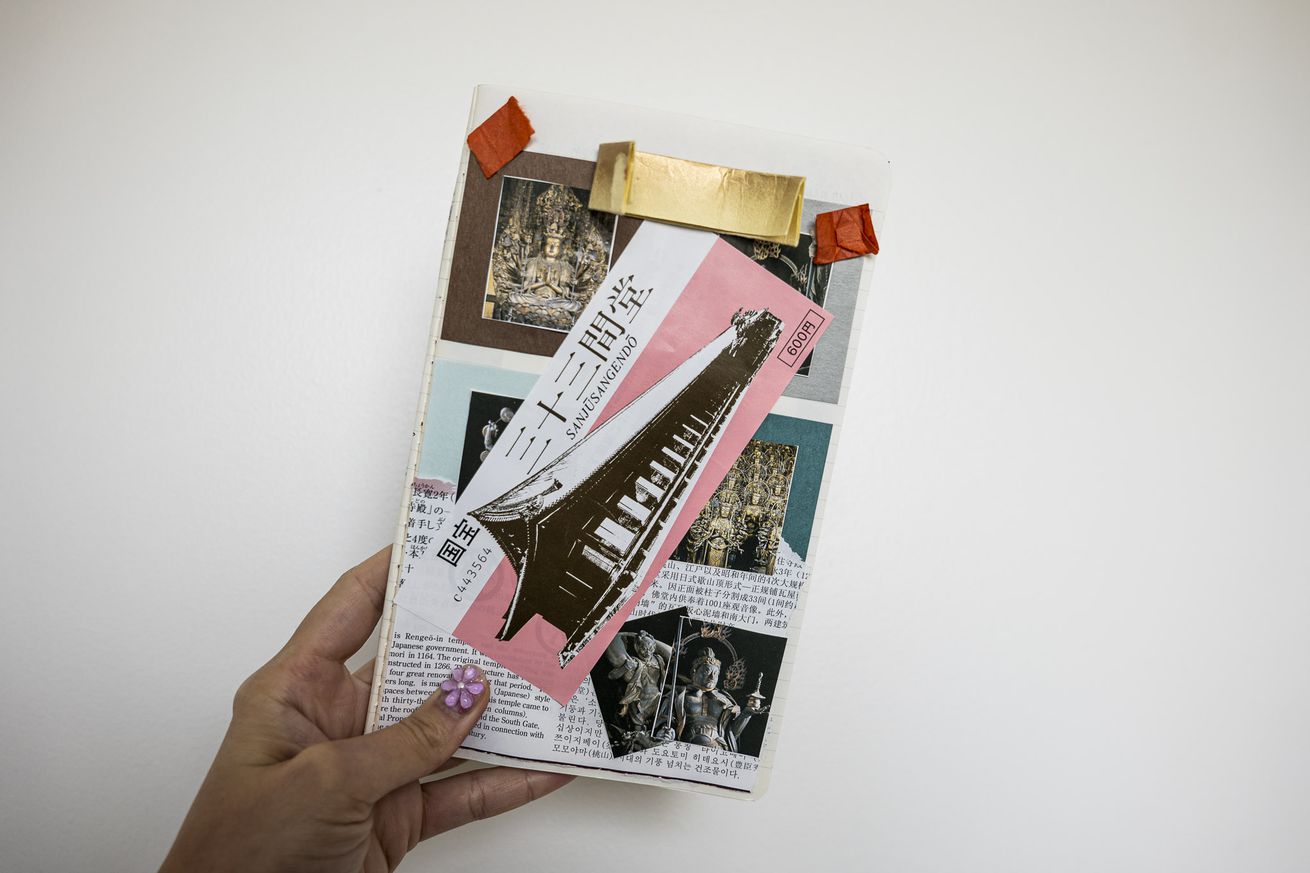
Organizing my pretty pile of garbage
There’s really no other way to say this: I like to save trash. Receipts from favorite stores or meals, pamphlets and maps from trips, ticket stubs, and clothing tags — if some scrap is from a cherished memory or even simply well-designed, I tuck it away in random corners of my home and mostly forget about it until I go looking for something else.
The impulse to hoard documentation is likely annoying to anyone who lives with me. Unfortunately for them, it’s also very good for my job. At least one Wayback Machine tab stays open at all times, and I have a terrifying number of screenshots, recordings, transcripts, and notes bogging down every device I own. But unlike the physical ephemera packed away in drawers and boxes, files on my computer are just that: shapeless, searchable, not littering the tops of dressers or forgotten in pockets and stacks. My stash of bits and bobs hasn’t yet become a problem, but I’ve finally started thinking through what I might actually do with them — when we talk about pulling up receipts on something, I don’t think it was meant to be literal.
I have plenty of digital outlets at my disposal for archiving what I do with my time, but none seemed quite right for my precious pile of garbage. I considered Instagram Stories — buttoned down and casual enough that a gentle arrangement of pieces of paper and cute shopping bags wouldn’t feel out of place. But I wasn’t sure I wanted to share my fixations with others in order to file them away. And once I snapped a picture, what to do with the physical evidence? I was back at square one.
Ultimately, my solution was as low-tech as you can get. Instead of coming up with a clever new way to preserve these tiny trinkets, I grabbed a glue stick, scissors, and empty notebook and went to town.
Scrapbooking is an activity people have been doing for centuries, and once you start, it’s clear why it’s endured for so long. One of my favorite Instagram accounts, @paperofthepast, collects and documents vintage and antique scrapbooks stretching back to the 1800s. Scrolling through the photos is as surreal and transporting as it is beautiful, but I try not to linger too much on what the original owner wrote for fear of feeling like an intruder. Before coming across the Instagram account, I hadn’t really considered that these documents of the everyday could survive at all.
Generations ago, someone was saving cigarettes, food packaging labels, and friends’ thumbprints in bound books. Now 100 years later, the contents are immortalized on social media. It feels a little weird to be able to peer into the private musings of a stranger, but seeing what people thought to save is surprisingly moving, and the layouts and aesthetics feel incredibly contemporary and modern.
Scrapbooking has also been fully content-ified, even when the material inside doesn’t represent an actual life. For fake scrapbook videos, it’s the process of assembly that pulls people in. Viral journaling TikTok accounts like @senajournal create ASMR-level scrapbooking videos by peeling off stickers, tearing paper, and arranging pieces on the page — but the scraps in question are mostly coming from a pad of decorative paper or images that look like they were ripped off of mood boards (some collages even include torn bits of fake letters written in cursive). The pages look perfect, and there is something uncanny about the whole exercise. Imagine someone finds a scrapbook in 100 years and a pasted letter starts, “Lorem ipsum dolor sit amet…”
There are very few things in modern life that companies haven’t attempted to digitize, whether it actually makes sense to do so or not. From software for making grocery shopping lists to apps that track and share the route of the user’s run, there is a tech “solution” popping up constantly. It happened to collaging, too: last year, Pinterest’s invite-only mood boarding app, Shuffles, caused a brief frenzy among young people desperate to use it.
Maybe I’m old, but so far, nothing beats the physical experience of assembling and revisiting a book of my favorite things that I can hold in my hands. Each piece put in its place feels like another memory saved; it’s hard to imagine getting that satisfaction from clicking “post.” And when it’s time to move on — from a chapter in life or from this plane of existence entirely — I can do whatever I please with my junk. My random odds and ends hopefully won’t be on a future stranger’s Instagram account and definitely not preserved in a digital form on some company’s data servers. I prefer the scraps in their truest form — irregular, imperfect, and disposable if necessary.

